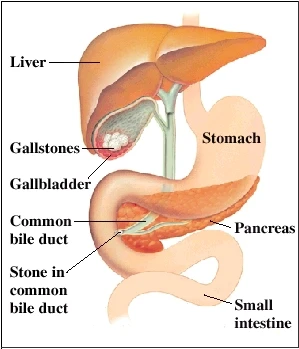If your pancreas suddenly becomes irritated or inflamed, you have acute pancreatitis. Acute pancreatitis is often very painful. Emergency medical treatment is usually needed.

Symptoms of Acute Pancreatitis
- Severe pain in your upper abdomen to your back
- Nausea and vomiting
- Abdominal swelling and tenderness
- Fever
- Rapid pulse
- Shallow, fast breathing
Treating Acute Pancreatitis
If you have acute pancreatitis, you may be in the hospital for a few days. For part of this time, you likely won’t be allowed to eat or drink. This lets your pancreas rest and heal. You will receive nutrition and fluids through an intravenous (IV) line. Medications are given to help ease any pain.
If You Have Chronic Pancreatitis
If the pancreas stays inflamed for a long time, chronic pancreatitis may result. Common symptoms include diarrhea, weight loss, and abdominal pain. Possible complications of chronic pancreatitis include the following:
- Diabetes
- Malnutrition (not absorbing enough nutrients)
- Pancreatic cancer (rare)
Treatment for chronic pancreatitis includes the following:
- Medications to help the pancreas work
- Treatment for gallstones
- Avoiding alcohol
Causes of Pancreatitis
Gallstones are one of the most common causes of pancreatitis. These hard stones form in the gallbladder, an organ located near the pancreas. These two organs share a passage into the small intestine called the common bile duct. Fluid can't leave the pancreas, though, if gallstones block this duct. The fluid backs up and causes pancreatitis. Alcohol, certain medications, trauma, and infection can also cause pancreatitis. Problems with the structure of the pancreas may also be a cause.
